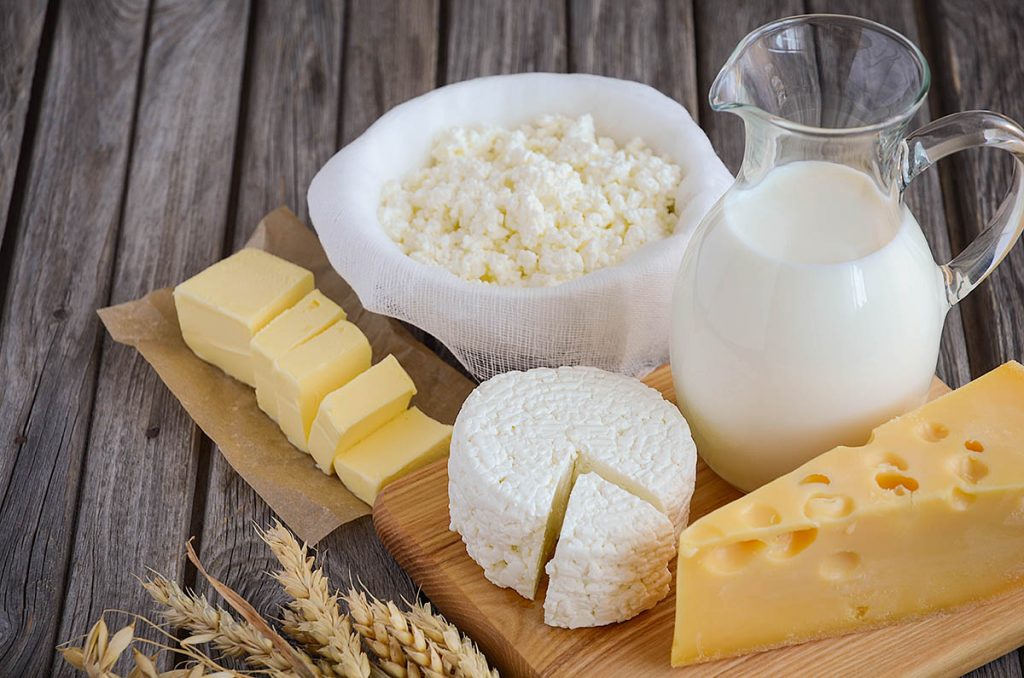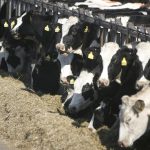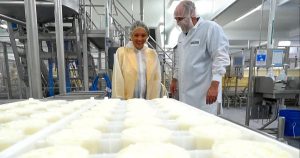
Under the CSFP program, about 600,000 needy seniors nationwide monthly receive boxes of food.
The Times reported that in March, after seniors were encouraged to self-isolate, USDA granted a California state request that the CSFP exclude cheese from the boxes, since it was the only nonperishable item.
The Times said the three-month exemption allowed food banks to remove cheese and then use private companies or volunteers to deliver the monthly aid to clients’ homes, rather than require vulnerable seniors to pick them up during the pandemic.
Several aid groups relied on Amazon and others who agreed to deliver the boxes for free, the Times added.
But in July, the federal waiver ended and USDA officials refused to extend it, meaning cheese must again be included and, more problematically, refrigerated in transit.
California saw an immediate 30% drop in the number of seniors receiving their monthly food aid through the program, the Times reported. State data show 40,000 fewer California seniors received food in July than in June, with the majority living in Los Angeles County, Orange County and the Bay Area, the Times said.
Rep. Adam Schiff, D-Calif., told the Times any nutritional value of cheese is “not a benefit if people can’t get the food at all.”
Schiff and fellow Democrats Reps. Gil Cisneros and Jimmy Panetta joined other members of California’s congressional delegation in signing a letter Friday urging Agriculture Secretary Sonny Perdue to grant the state’s request for continued flexibility so deliveries can resume.
“We have the availability of food for our seniors and the means of getting the food to their homes. Please continue your efforts to ensure that our seniors do not have to risk their health to overcome their hunger,” the letter states.
In addition to leaving out the perishable cheese, lawmakers want to temporarily waive the USDA rule that recipients personally accept the package and show identification. That would allow delivery companies to leave the box on a porch or stoop if no one answers the door. Both are department regulations, not legal requirements.
Schiff told the Times he suspects federal regulators are bowing to pressure from the dairy industry.
When the Times alerted Matt Herrick, senior vice president of the International Dairy Foods Association which represents U.S. dairy processors, Herrick said he was unaware of the problem and said the industry would be open to continued flexibility during the pandemic.
“This is a challenging time for many, and dairy producers and processors want to do everything we can to help ensure food security for those in need. And that may require additional creativity and the appropriate flexibility by the government agencies that oversee these programs to ensure food is reaching people in need without creating impediments,” Herrick said.
But when The Hagstrom Report alerted the National Milk Producers Federation, which represents farmers, to the situation, NMPF President and CEO Jim Mulhern was firmer in his statement that the boxes should contain dairy products.
“NMPF strongly supports including high-quality, nutritious dairy products in USDA programs that help people who need assistance,” Mulhern said.
“Should logistical problems make their distribution more difficult, then some temporary flexibility or alternative means of distribution may be necessary. Ultimately this issue simply calls for some creativity to ensure that these nutritious dairy products are provided to those who need them.”

























